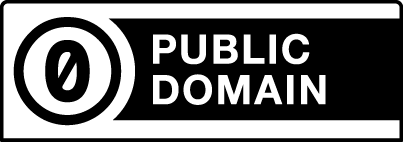Advanced Search

- Historical National Accounts Group for Ireland (HNAG)
- Approximate annual cost of clothing, provisions...
Approximate annual cost of clothing, provisions, forage and regimental pay, 1901
Surrogate not available
text/csv assets are not supported for display. Please download the asset using the link below if available.
not available
Total number of assets (3)
The Digital Repository of Ireland End User Agreement.
- Ownership and copyright information for the digital objects are stated explicitly in the Rights statement of each metadata record.
- You agree to use the digital objects only in accordance with this End User Agreement. You agree to notify the Digital Repository of Ireland of any breach of its terms or of any infringements of the digital objects of which you become aware as quickly as possible.
- You will abide by the appropriate copyright and licence statements applied to digital object and metadata.
- You will ensure that means of access to data are kept secure and used only for appropriate purposes. In particular, passwords are personal and should not be shared.
- Whenever you use a digital object you should, where possible, use the bibliographic citation recommended by the Repository, or an equivalent.
- Use of the data on this web site is at your sole risk. You agree not to use this site for any illegal or unlawful purpose. In particular, you will not use the digital objects or metadata in a manner which infringes the law relating to copyright, confidentiality, privacy, data protection, defamation or similar or related doctrines. Moreover, you will not use or attempt to use the digital objects or metadata to identify any individuals from which a study sample may have been selected, nor may you claim to have done so.
- The Repository excludes, to the maximum extent permitted by law, all express or implied warranties of any kind in relation to any digital object or metadata; in particular, the Repository shall not be liable for any loss or damage (i) which may be suffered or incurred by you or a third party in respect of the use by you of any digital object or metadata, or (ii) which may arise directly or indirectly in respect of the use by you of any digital object or metadata.
- You will offer for deposit any new digital objects which have been derived from the digital objects supplied.
- Any breach of this End User Agreement will lead to the immediate and automatic termination without notice of your access to the services, and could result in legal action against you.
- This Agreement shall be governed by and construed in accordance with the laws of the Republic of Ireland and each Party irrevocably submits to the exclusive jurisdiction of the courts of the Republic of Ireland over any claim or matter arising under or in connection with this Agreement.
- This site uses cookies.
By ticking "I agree" below you are agreeing to the terms and conditions of use as outlined above. These are also available on the End User Agreement page. For more information see our Privacy Policy.
PDF reader
This browser does not support viewing this file type. Please download the asset to view.
Restricted data access request form
- DOI
- 10.7486/DRI.wh24mn79w
- Title
- Approximate annual cost of clothing, provisions, forage and regimental pay, 1901
- Description
-
The series made available here were originally put online in the mid-2000s by the Historical National Accounts Group for Ireland (HNAG).
HNAG was founded by Kieran Kennedy in 1994 and has been a nexus for scholars and professionals interested in Irish economic history. Meeting initially at the Economic and Social Research Institute (ESRI) in Dublin, the group later migrated to Trinity College Dublin, where it evolved into the Irish Quantitative History group (IQH) that stills meets annually in January.
Comprising academics, researchers and public sector representatives, HNAG’s original mission was to develop comprehensive statistics on Irish economic growth from the Famine to the First World War; those interested in that initial mission are encouraged to read Andersson and Lennard (2019, "Irish GDP between the Famine and the First World War: Estimates based on a dynamic factor model"). Since the inception of HNAG, the group produced outputs including symposiums, working papers, and data series on Irish economic history. With Kieran Kennedy at the helm, the group’s efforts significantly contributed to the exploration and understanding of Ireland’s economic past. One of their outputs was a digital data depository, created by Jason Begley, Frank Geary, and Kevin O’Rourke.
Regrettably, the data made available online by HNAG, and which were stored on TCD servers, were lost in the mid-2010s. With the support of the Royal Irish Academy (RIA), through a 2023 Nowlan Digitisation Grant, for which we are very grateful, it has been possible to restore the HNAG data series. In addition to the financial support of the RIA, we also benefited hugely from the cooperation of those involved in HNAG and the IQH. - Creators
- Historical National Accounts Group for Ireland (HNAG)
- Contributors
- Centre for Economics, Policy and History (CEPH)Dorman, Andrewhttps://orcid.org/0000-0002-5939-2892Franke, Richardhttps://orcid.org/0009-0007-1583-3311Lyons, Ronanhttps://orcid.org/0000-0001-5342-987XOhler, Johann
- Creation Date
- 1901
- Published by Digital Repository of Ireland
- 21/10/2024
- Subjects
- Military ExpenditureRegimental PayRetired Pay
- Subjects (Temporal)
- 1901
- Types
- dataset
- Language
- English
- Sources
- British Parliamentary Papers, Accounts and Papers, Army estimates, 1901 XXXVIII
- Rights
- Digitised by the HNAG
- Reuse Licence
-
 Creative Commons Attribution 4.0 International License
Creative Commons Attribution 4.0 International License - Metadata Statement
-
 All metadata in the Repository is licensed CC0 unless otherwise indicated. For the reuse of digital assets please see Reuse Licence of individual objects.
All metadata in the Repository is licensed CC0 unless otherwise indicated. For the reuse of digital assets please see Reuse Licence of individual objects. - Depositing Organisation
- Trinity College Dublin, the University of Dublin
